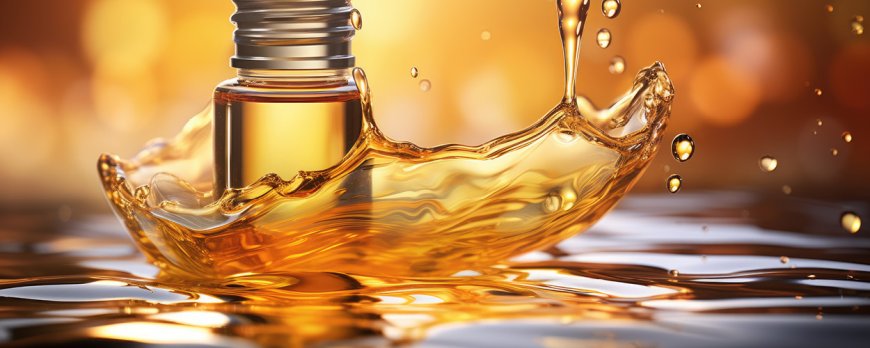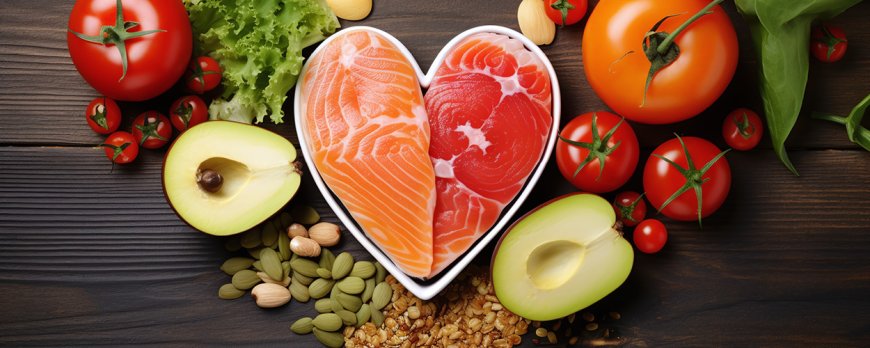Alternative supplements for high cholesterol
Explore the efficacy of alternative supplements for high cholesterol. Discover natural ways to improve your health and manage cholesterol levels.

Alternative Supplements for High Cholesterol
High cholesterol can be effectively managed with alternative supplements and natural remedies that have shown promise in lowering cholesterol levels. These supplements offer a potential alternative to traditional medications, providing individuals with more choices in managing their cholesterol.
Key Takeaways:
- Garlic has been shown to lower total cholesterol levels, but it's important to consult with a healthcare professional before use.
- Fiber supplements, such as psyllium and methylcellulose, can help lower overall cholesterol and LDL cholesterol.
- Whey protein supplements have been found to lower LDL and total cholesterol when pure and of high quality.
- Guggulipid, derived from the mukul myrrh tree, has shown promise in lowering total and LDL cholesterol, but further research is needed.
- Red yeast rice supplements containing monacolin K may lower cholesterol, but their use is restricted by the FDA.

The Efficacy of Garlic in Lowering Cholesterol
Garlic is a widely recognized natural remedy that has shown promise in lowering cholesterol levels, according to scientific studies. Its potential benefits lie in its ability to reduce total cholesterol levels in the blood. Although more research is needed to solidify these findings, garlic has been found to have a positive impact on cholesterol management.
Key Points:
- Garlic may lower blood levels of total cholesterol, offering a natural option for those looking to manage their cholesterol levels.
- However, it's important to note that garlic may affect blood clotting. Therefore, individuals taking blood-thinning medications or with bleeding disorders must consult with their healthcare provider before incorporating garlic into their routine.
- While garlic can be consumed raw, it is also available in supplement form, making it easier for individuals to incorporate into their daily regimen.
As with any alternative supplement or remedy, it is crucial to consult with a healthcare professional before starting garlic supplements. They can provide personalized guidance and ensure that it does not interfere with any existing medications or health conditions.
Overall, garlic is a natural option worth considering for those looking for additional support in managing their cholesterol levels. However, it is important to approach it with caution and always seek professional advice for optimal results.
The Role of Fiber in Cholesterol Management
Incorporating fiber supplements into your diet can be an effective way to manage high cholesterol levels and reduce the levels of LDL cholesterol. Fiber is a crucial component of a healthy diet and has been shown to have numerous benefits for heart health. By adding fiber supplements to your daily routine, you can help lower your cholesterol levels and improve your overall cardiovascular health.
Fiber supplements work by binding to cholesterol in the digestive system and preventing it from being absorbed into the bloodstream. This helps to reduce LDL cholesterol levels, which is important for maintaining a healthy heart. Examples of fiber supplements include psyllium, methylcellulose, and wheat dextrin. These supplements are widely available and can be easily incorporated into your daily routine.
The benefits of fiber supplements
- Fiber supplements help lower LDL cholesterol levels
- They can improve overall cardiovascular health
- Fiber supplements are easy to incorporate into your diet
- They are widely available and affordable
It's important to note that while fiber supplements can be beneficial for cholesterol management, they should be used in conjunction with a healthy diet and lifestyle. Eating a diet rich in whole grains, fruits, vegetables, and legumes can also provide you with the necessary fiber to help lower cholesterol levels. Additionally, regular exercise and avoiding smoking can further enhance the benefits of fiber supplements in managing high cholesterol.
Before incorporating fiber supplements into your diet, it's always a good idea to consult with your healthcare professional. They can provide personalized recommendations and ensure that the supplements are suitable for your individual health needs. It's also important to follow the recommended dosage instructions provided with the supplement to ensure safe and effective use.

Whey Protein for Cholesterol Control
Whey protein supplements have been found to be effective in lowering LDL and total cholesterol levels, making them a potential natural remedy for high cholesterol. When choosing a whey protein supplement, it is important to look for one that lists whey protein as the only ingredient and is certified for purity. This ensures that you are getting a high-quality product that can deliver the desired cholesterol-lowering benefits.
Studies have shown that including whey protein in your diet can help reduce LDL cholesterol, which is often referred to as the "bad" cholesterol. Whey protein contains bioactive peptides that have been found to have cholesterol-lowering effects. These bioactive peptides can inhibit the synthesis of cholesterol in the liver, leading to a decrease in LDL cholesterol levels.
Additionally, whey protein has been shown to increase levels of HDL cholesterol, which is known as the "good" cholesterol. HDL cholesterol helps remove LDL cholesterol from the bloodstream, reducing the risk of plaque buildup in the arteries. By increasing HDL cholesterol levels and lowering LDL cholesterol levels, whey protein can contribute to a healthier cholesterol profile.
How to Incorporate Whey Protein into Your Diet
- Add whey protein powder to your favorite smoothie recipe.
- Mix whey protein powder with water or milk for a quick and convenient protein shake.
- Use whey protein powder as an ingredient in baked goods, such as protein bars or cookies.
Remember, while whey protein supplements can be a beneficial addition to your cholesterol-lowering efforts, it is important to consult with a healthcare professional before starting any new supplement or alternative remedy. They can provide personalized advice and guidance based on your individual health needs.
Exploring the Potential of Guggulipid
Guggulipid, derived from the gum resin of the mukul myrrh tree, has shown promise in lowering total cholesterol and LDL cholesterol levels, although additional research is necessary. This herbal supplement has been used in traditional medicine for centuries and is believed to possess anti-inflammatory and antioxidant properties.
Some studies suggest that guggulipid can effectively reduce cholesterol levels by inhibiting the production of cholesterol in the liver. It may also increase the breakdown of LDL cholesterol, thereby promoting its removal from the bloodstream. However, more rigorous and large-scale studies are needed to fully understand its effectiveness and safety.
The Benefits of Guggulipid
- Potential to lower total cholesterol levels
- Possible reduction in LDL cholesterol
- Traditional use in alternative medicine
- Believed to possess anti-inflammatory and antioxidant properties
While guggulipid holds promise as a natural supplement for managing high cholesterol, it's important to approach its use with caution. As with any herbal supplement, there may be potential side effects and interactions with medications. It is advisable to consult with a healthcare professional before incorporating guggulipid into your cholesterol management plan.
To date, guggulipid is not widely regulated by health authorities, and the purity and quality of the supplement can vary. When considering guggulipid, opt for reputable brands that use standardized extracts and have undergone third-party testing for purity and potency.
Alternative supplements such as guggulipid can be explored as part of a comprehensive approach to managing high cholesterol. However, it is essential to remember that lifestyle modifications, including a healthy diet, regular exercise, and prescribed cholesterol-lowering medications, are fundamental pillars of cholesterol management. Consultation with a healthcare professional can provide personalized guidance and ensure that the chosen supplements align with an individual's specific health needs.
The Controversy Surrounding Red Yeast Rice
Red yeast rice supplements, containing monacolin K, have been found to lower cholesterol levels, although their use is restricted by the FDA. Monacolin K is chemically similar to a cholesterol-lowering medication, and studies have shown its effectiveness in reducing total cholesterol and LDL cholesterol levels. However, due to the potential side effects and the inability to regulate the dosage of monacolin K in red yeast rice supplements, the FDA has implemented restrictions on their use.
The FDA considers red yeast rice supplements containing more than trace amounts of monacolin K to be unapproved drugs. This is because the presence of monacolin K in these supplements makes them comparable to prescription statin medications, which are regulated for safety and efficacy. As a result, consumers should exercise caution when considering the use of red yeast rice supplements and consult with a healthcare professional.
It is important to note that not all red yeast rice supplements contain monacolin K, and the FDA does allow the sale of these supplements. However, without monacolin K, the cholesterol-lowering effectiveness of these supplements is uncertain. Consumers should carefully read product labels and consult with a healthcare professional to determine the best course of action for their cholesterol management.
Given the controversy surrounding red yeast rice supplements, it is crucial to remember that alternative treatments for high cholesterol are not one-size-fits-all solutions. Consulting with a healthcare professional is essential to assess individual health needs, potential risks, and the best approach to managing high cholesterol levels. Together with a balanced diet, exercise, and possibly other cholesterol-lowering medications, alternative supplements can be a part of an overall strategy for maintaining good cardiovascular health.

Policosanol - An Effective Alternative?
Policosanol, found in sugar cane or beeswax, has shown promise in reducing LDL cholesterol levels, although the effectiveness of beeswax-derived supplements is uncertain. However, research on the benefits of policosanol is still ongoing, and more studies are needed to conclusively determine its efficacy in cholesterol management.
While some studies have suggested that policosanol derived from sugar cane may be effective in lowering LDL cholesterol levels, most policosanol supplements available in the US are derived from beeswax. The effectiveness of these beeswax-derived supplements in reducing cholesterol remains unclear, and more research is required to establish their impact.
Further Research Needed
It is important to note that while preliminary findings on the potential benefits of policosanol are promising, further research is needed to fully understand its effectiveness. Additionally, it is essential to consult with a healthcare professional before incorporating any supplement into your routine, as they can interact with medications and cause side effects.
In addition to policosanol, there are other alternative supplements and dietary changes that may help lower cholesterol levels, such as fenugreek seeds, artichoke leaf extract, yarrow, holy basil, fiber supplements, and a diet rich in fiber, soy, omega-3 fatty acids, and phytosterols. However, it is crucial to seek professional advice to determine the most suitable course of action for managing high cholesterol levels.
Other Alternative Supplements for High Cholesterol
Alongside the aforementioned supplements, other alternatives such as fenugreek seeds, artichoke leaf extract, yarrow, and holy basil have demonstrated potential in supporting cholesterol management.
1. Fenugreek Seeds: Fenugreek seeds contain soluble fiber that can help decrease LDL cholesterol levels. They can be consumed as a spice, added to dishes, or taken in supplement form.
2. Artichoke Leaf Extract: Extracts from artichoke leaves have been found to reduce total cholesterol and LDL cholesterol levels. These extracts are available in supplement form and can be a beneficial addition to a cholesterol-lowering regimen.
3. Yarrow: Yarrow is an herb that has traditionally been used to treat various conditions, including high cholesterol. While further research is needed to determine its specific effects on cholesterol, some studies suggest that yarrow may help lower LDL cholesterol levels.
4. Holy Basil: Holy basil, also known as tulsi, is an herb that has been used in traditional medicine for its potential cholesterol-lowering properties. Some studies suggest that holy basil may help reduce LDL cholesterol levels, but more research is needed to fully understand its effectiveness.
It's important to note that these alternative supplements should be used in conjunction with a healthy diet and regular exercise. Additionally, it's crucial to consult with a healthcare professional before starting any new supplements, as they may interact with medications or have side effects. Remember, managing high cholesterol levels often requires a comprehensive approach that includes both lifestyle changes and, in some cases, cholesterol-lowering medications.

Incorporating Cholesterol-Lowering Foods into Your Diet
In addition to alternative supplements, incorporating cholesterol-lowering foods such as those rich in fiber, soy, omega-3 fatty acids, and phytosterols into your diet can help manage high cholesterol levels. Here are some key foods to consider:
- Fiber: Foods high in soluble fiber, such as oats, barley, legumes, and fruits like apples and berries, can help reduce LDL cholesterol levels. Aim for at least 25-30 grams of fiber per day.
- Soy: Including soy-based products like tofu, tempeh, and soy milk in your diet can help lower LDL cholesterol. Soy contains plant compounds called isoflavones that have cholesterol-lowering properties.
- Omega-3 fatty acids: Incorporate fatty fish like salmon, mackerel, and sardines into your diet. These fish are rich in omega-3 fatty acids, which can help lower triglycerides and raise HDL (good) cholesterol levels.
- Phytosterols: Foods fortified with phytosterols, such as certain margarines, can help block the absorption of cholesterol in the intestines. Include foods like nuts, seeds, and whole grains, which naturally contain phytosterols.
Remember to maintain a well-balanced diet that includes fruits, vegetables, whole grains, and lean proteins. Limit your intake of saturated and trans fats, as they can raise LDL cholesterol levels. Instead, opt for healthier fats found in avocados, olive oil, and nuts.
It's important to consult with a healthcare professional or registered dietitian before making any significant changes to your diet. They can provide personalized guidance based on your specific needs and medical history. By combining cholesterol-lowering foods with alternative supplements and following a healthy lifestyle, you can effectively manage high cholesterol levels for better overall health.
Conclusion
Natural remedies and alternative supplements offer potential options for managing high cholesterol levels, but it is crucial to consult with a healthcare professional for personalized advice and consider other lifestyle interventions such as diet, exercise, and medications, if necessary.
Some supplements have shown promise in lowering cholesterol levels. Garlic has been studied for its potential to lower total cholesterol, but it's important to be cautious as it may affect blood clotting. Fiber supplements, such as psyllium, methylcellulose, and wheat dextrin, can help lower overall cholesterol and LDL cholesterol. Whey protein supplements, when pure and of high quality, have also been found to lower LDL and total cholesterol.
Guggulipid, derived from the gum resin of the mukul myrrh tree, may have a positive effect on cholesterol levels, but more research is needed. Red yeast rice supplements containing monacolin K have shown potential in lowering cholesterol, but they are restricted by the FDA. Policosanol, derived from sugar cane, has been found effective in some studies, although its effectiveness in beeswax-derived supplements is unclear.
Other alternative supplements like fenugreek seeds, artichoke leaf extract, yarrow, and holy basil have shown potential in lowering cholesterol levels. Additionally, incorporating foods that are high in fiber, soy, omega-3 fatty acids, and phytosterols into your diet can also be beneficial. However, it's important to seek guidance from a healthcare professional before starting any supplement or alternative remedy, as they may interact with medications and cause unwanted side effects. Managing high cholesterol levels may require a combination of lifestyle changes and medication, so it's important to work closely with a healthcare professional to find the best approach for your specific needs.
FAQ
Are alternative supplements effective in lowering high cholesterol?
Alternative supplements may have a positive effect in lowering cholesterol levels. However, it's important to consult with a healthcare professional before starting any supplement or alternative remedy.
What are some alternative supplements for high cholesterol?
Some alternative supplements that may help lower cholesterol levels include garlic, fiber, whey protein, guggulipid, red yeast rice, policosanol, fenugreek seeds, artichoke leaf extract, yarrow, and holy basil.
Can garlic lower cholesterol?
Garlic has been shown to potentially lower blood levels of total cholesterol, but further research is needed. It's important to consult with a doctor before taking garlic as it may affect blood clotting.
How does fiber help lower cholesterol?
Taking a fiber supplement can help lower overall cholesterol levels and LDL (bad) cholesterol. Examples of fiber supplements include psyllium, methylcellulose, and wheat dextrin.
Is whey protein effective in lowering cholesterol?
Whey protein supplements can lower LDL and total cholesterol. Look for a supplement that lists whey protein as the only ingredient and is certified for purity.
What is guggulipid and can it lower cholesterol?
Guggulipid, derived from the gum resin of the mukul myrrh tree, has been shown to lower total cholesterol and LDL cholesterol in some studies. However, more research is needed to determine its safety and effectiveness.
Can red yeast rice lower cholesterol?
Some red yeast rice supplements have been shown to lower cholesterol due to the presence of monacolin K, which has a similar chemical makeup to a cholesterol-lowering medication. However, the FDA has restricted the use of red yeast rice supplements containing monacolin K.
What is policosanol and can it lower cholesterol?
Policosanol, derived from sugar cane, has been found to be effective in lowering LDL cholesterol in some studies. However, most policosanol supplements in the US are extracted from beeswax, and their effectiveness in lowering cholesterol is unclear.
Are there any other alternative supplements for high cholesterol?
Other alternative supplements that may help lower cholesterol include fenugreek seeds, artichoke leaf extract, yarrow, and holy basil.
Can incorporating certain foods into my diet help lower cholesterol?
Yes, incorporating foods high in fiber, soy, omega-3 fatty acids, and phytosterols into your diet can help lower cholesterol levels.
Is it necessary to take cholesterol-lowering medications?
It is important to consult with a doctor to determine if cholesterol-lowering medications are necessary in addition to alternative supplements and lifestyle changes.

































































































































